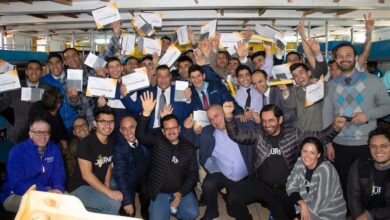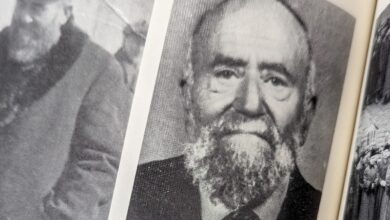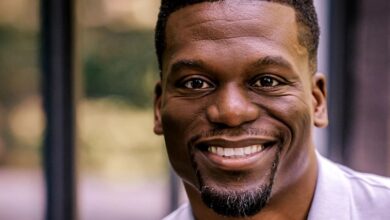Healing prayers for Thomas Carpenter
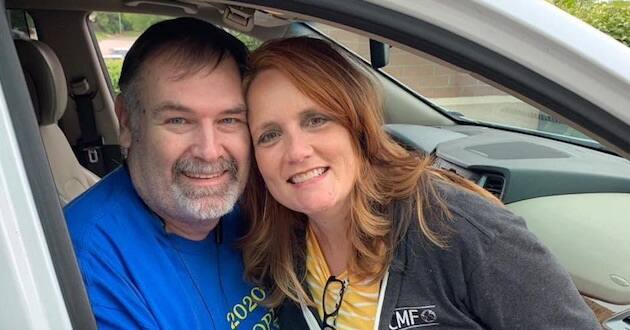
Thomas Carpenter couldn’t move, couldn’t open his eyes, and he was having trouble figuring out why. Despite the paralysis, he wasn’t panicking. In fact, he felt perfect peace.
He decided the prayers were the reason for his calm.
He listened attentively. At first, he heard just one or two voices, but soon the prayers began to multiply. Some voices he understood, praying in English with assured faith. Others offered only hints of meaning in languages he had encountered during his missionary travels but had never learned to use himself.
And then there were the languages he immediately recognized as heavenly. Voices praying in tune with the Holy Spirit’s prompting, in words found in no human tongue, but vibrant and alive with providential intent. As he continued to listen to the multitude of voices, he thought back to a favorite passage in Revelation where the apostle John spoke of a “voice of many waters.”
Then, from among the chorus of intercessors, Thomas heard a cherished voice praying for him specifically — his wife, Angelia.
“It was like the Lord just dropped a microphone in front of her, and I heard her say, ‘Lord, would You please heal my wonderful husband, Thomas. I need him.’”
Had Thomas been able to open his eyes that day, there would have been no praying throng to greet him. No Pentecostal camp meeting raising the rafters. The ICU wing at Cox Medical Center in Springfield, Missouri, is kept deliberately quiet. Thomas Carpenter was unable to move or see because he was in a medically induced coma and breathing in cadence with a ventilator. The doctors and nurses supervising his care were unsure he would recover from the coronavirus doing its best to paralyze his lungs.
But they couldn’t hear the prayers.
Special Touch
Prayer has always been interwoven with Thomas and Angelia’s ministry. As children’s evangelists in the 1990s, they encouraged their young audiences at countless churches and district camp meetings to draw close to God, voicing to Him their most cherished dreams and greatest fears. The Heavenly Father hears the heart’s cry of all His children, from weathered saint to the truly young.
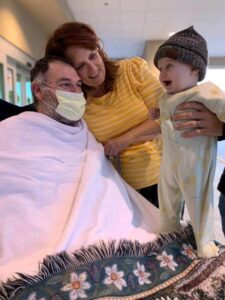
In God’s timing, the Carpenters discerned a new ministry focus when a close friend, a pastor whose daughter had spina bifida, invited them to speak at a camp for people with disabilities, Special Touch Ministries.
“We went, and it changed our lives,” Thomas says. “We saw young people with mental and physical disabilities filled with the Spirit. When you see someone with Down syndrome speaking in other tongues, and another one give the interpretation — and that interpretation is right on — it really changes your outlook.”
In time, Thomas was asked to join the national leadership team for Special Touch, and Angelia was appointed director of Women’s Ministries for the Assemblies of God Arkansas district. In 2012 they had the opportunity to share the Special Touch experience with churches in South Africa, and by their third trip to Africa they began to explore the possibility of becoming world missionaries. Since 2018 they have been serving the disability community internationally with CompassionLink, AGWM’s ministry arm that partners with missionaries and local churches to create and restore healthy communities.
Covid’s Grip
“The first weekend in March we were on a ministry trip and March 6 was my first day not to feel well,” Angelia says. “I endured an extreme headache and weakness; Thomas’ symptoms started four days later and came on hard and fast. He was having trouble breathing.”
By Friday, March 13, Angelia knew she had to get her husband to the emergency room. Even then, she was unaware of the deeper implications of Thomas’ symptoms. After an initial interview with a CDC team member, they were allowed to go home with medication and were scheduled for COVID tests on Monday. By the time the tests confirmed they were both COVID-positive, Thomas was beginning to decline. Angelia rushed him back to the hospital that Wednesday, deeply concerned, but still believing a solution would emerge in the short run.
“I thought, OK, a couple of nights, he’ll get some oxygen and meds, feel better, and come home,” she remembers. “Two nights turned into more than a month on a ventilator. The doctors told me they were literally writing the book on how to treat COVID with Thomas’ case. There was no history to say how a white 55-year-old male would respond.”
Thomas remembers the medical team members being at a loss as to how he could be assisted to breathe.
“They said, ‘We’ve got you on 100 percent oxygen and your blood oxygen level is still in the low 80s. We can’t let it get any lower,’” he recalls. “I called Angelia in the early morning hours of March 19 and told her they were going to move me to ICU. I asked her to call my dad, my brother and sister, and my dear friend Pastor Wade Mumm in Florida. She called them and got them praying, and they mobilized the troops and got people from around the world praying for me.”
Prayer’s Priority
Only after he emerged from his coma and began extensive in-hospital rehabilitation did Thomas learn of the scale of intercession offered in his behalf. Facebook and other social media outlets became highways for repeated requests from his family and friends and for assurances of prayer support as well as written prayers and words of prophecy by the thousand.
While the internet silently conveyed that data, heaven saw fit to broadcast it loud and clear directly to Thomas. Experiencing what he describes as a stadium full of praying Christ followers, punctuated by his wife’s specific plea, Thomas says he began to sense his own commitment to pull through and reach for healing.
“It kept me from ‘having one foot in heaven and one foot on earth,’ and made me realize I needed to get both feet on earth so I could take care of my wife again,” he says. Thomas carried the memory of those prayers into consciousness as his medications were reduced and he was weaned off of the ventilator.
A final confirmation of God’s direct intervention came to light when he went home and shared his experience with Angelia, who was never allowed in his quarantined room and had faithfully prayed for him from a distance.
“She almost melted when I told her about her prayer for me,” Thomas says.
“When he recited it to me,” Angelia says, “I was so shocked that it was word for word what I had prayed! I was like, ‘I said those exact words!’ He said, ‘I know you did! I heard you!’”
Thomas and Angelia both feel they have gained a deeper understanding of the power in prayer.
“When people say, ‘Oh, all I can do is pray,’ they’re really not understanding the significance of that prayer,” Thomas says. “Those prayers are being poured out continually before the throne of God, and God hears them. He hears them whether they’re whispered in silence or cried out or shouted. And they all sound the same to the Lord. Your prayers are not useless. They’re not bouncing off the ceiling. You may not see the answer to your prayer immediately, because I sure didn’t. I was in the hospital a lot longer after I heard those prayers. But your prayers are effective. When you commit to pray, know that your prayers are effective.”
The miracle touches so much more than Thomas’ healing from COVID.
“Redemption continues throughout my whole life,” Angelia insists, “with every situation I may face. If we willingly give Christ our sickness, pain, worry, grief and disappointment (and the list goes on), our loving Savior always gives us something better in return — His mercies, courage, strength, healing, and contentment (and that list goes on as well). I am continuing to learn to engraft into my everyday life the truth that Jesus wants to redeem every difficult situation I face. Redemption is to be a daily experience, not just a one-time prayer of salvation.”
And the Carpenters agree their mutual brush with COVID has given them deeper insight into the daily challenges of the people they are committed to serving through CompassionLink.
“Thomas will be able to look at our friends with disabilities and on some level say, ‘I’ve been there. I know what it’s like,’” Angelia says. “And I’m grateful I can relate better, on a small level, to the caregivers, the families providing long-term care for a loved one.”
–Scott Harrup | AG News Service





